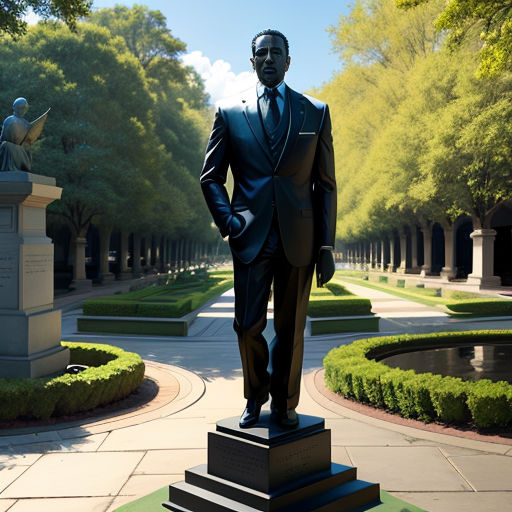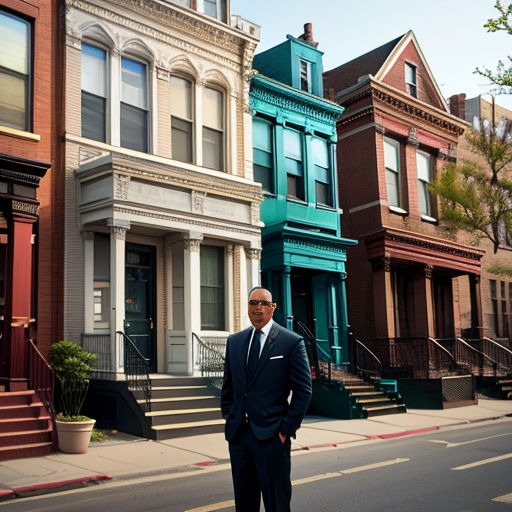
The Life and Legacy of Langston Hughes
By kbabrielle135

05 Sep, 2023

Born on the first day of February 1902, Langston Hughes emerged into a world that was not quite ready for his brilliance. His birthplace? Joplin, Missouri.

His parents divorced when he was young, and young Hughes was raised by his maternal grandmother in Lawrence, Kansas.

His love for writing burgeoned in this small, midwestern town. Hughes began writing poetry in the eighth grade and was selected as the class poet.

As he grew older, Hughes' keen interest in African American life and culture grew stronger. He was inspired by their struggle and resilience, a consistent theme in his writings.

His grandmother's stories about the American Civil War and the abolitionist movement deeply influenced him and shaped his political views.

After completing his high school education, Hughes went to Mexico to live with his father for a year. His experiences there further shaped his writing and perspective on life.

He enrolled at Columbia University, but left after a year, dissatisfied by the university's emphasis on white culture. This decision was a turning point in his life.

Hughes moved to Harlem in 1921 and began to immerse himself in the vibrant culture of this African-American neighbourhood. It was the beginning of the Harlem Renaissance, a period of great cultural and artistic explosion.

His career as a poets, social activist, novelist, playwright, and columnist took off during this period. Hughes was a leading figure of the Harlem Renaissance, and a key player in shaping the artistic contributions of this era.

His work was rooted in reality and gave voice to the black experience in America. He drew his inspiration from real life, focusing on the daily struggles, joys, and experiences of the common people.

Hughes was famous for his unique style of writing that incorporated the rhythm of blues and jazz. One of his most well-known quotes was, "The Negro Artist and the Racial Mountain," where he stated, "We younger artists who create now intend to express our individual, dark-skinned selves without fear or shame."

In his works, he urged black artists to be themselves, without any apology. His writings reflect this philosophy, embracing his black identity and culture without any compromise.

This distinguished Hughes from other writers of the time. He did not seek to popularize his work by westernizing it, rather he celebrated his culture and heritage through his words, making him a unique voice in American literature.

He penned down socio-cultural problems and racial issues that no author had ever dared to write about. His bold and unapologetic depiction of the black experience was groundbreaking.

Yet, his work was not just about struggle. His poems and prose also celebrated black culture, love, music, and humor, making him a versatile writer.

One of his most famous lines, "Life for me ain't been no crystal stair," from the poem "Mother to Son," beautifully encapsulates his realistic view of life's difficulties and the determination to overcome them.

Langston Hughes left an indelible mark on the American literary landscape. His work continues to inspire writers and readers worldwide, challenging them to see beyond the color bar and the cultural divide.

In May 1967, Hughes fell sick. He was diagnosed with prostate cancer. Despite extensive treatment, his health gradually worsened.

He passed away on May 22, 1967. His death was a huge loss to the literary world, but his legacy continues to live on in the hearts of millions of readers around the world.

His funeral was held in Harlem, the place he called home. Thousands came to pay their respects to this legendary poet, writer, and extraordinary human being who had done so much for the culture and people he loved.

His house at 20 East 127th Street in Harlem, New York City, has been given landmark status. It serves as a reminder of his unforgettable contributions to literature and to American culture.

More than just an author, Langston Hughes was a beacon of hope for future generations. His life and works continue to influence writers, poets, and artists, encouraging them to embrace their truth and express it without fear or shame.

Today, Langston Hughes' words still resonate with people of all backgrounds. They inspire, provoke thought, challenge norms and continue to spark conversations about race, culture, and identity.

"Hold fast to dreams, for if dreams die, life is a broken-winged bird that cannot fly," Hughes once said. His words serve as a reminder for every individual to chase their dreams fearlessly, to live authentically, and to honor their roots.

Langston Hughes forever changed the landscape of American literature. His fearless exploration of racial issues, his celebration of African American life and culture, his uniquely poetic voice, and his unwavering commitment to authenticity differentiates him from other authors. His legacy, indeed, will continue to inspire generations to come.